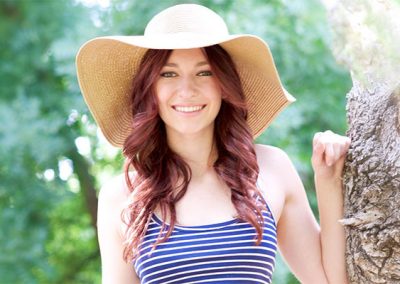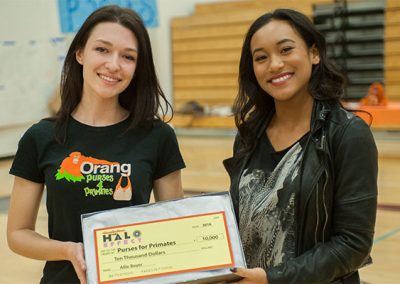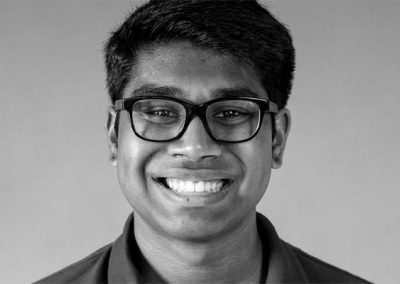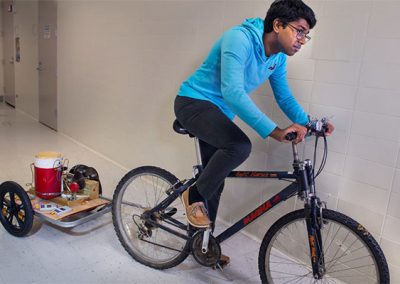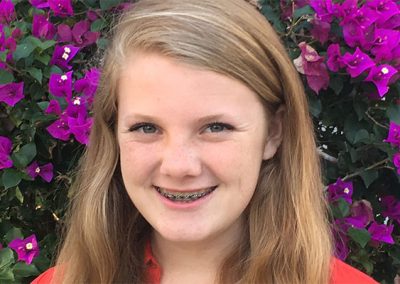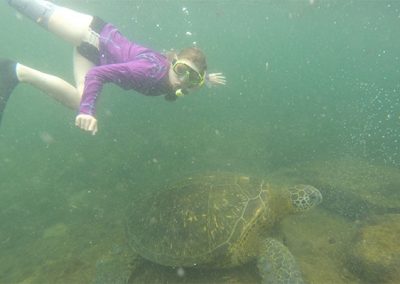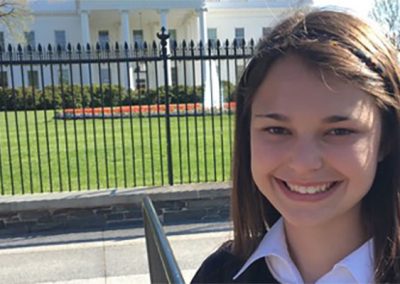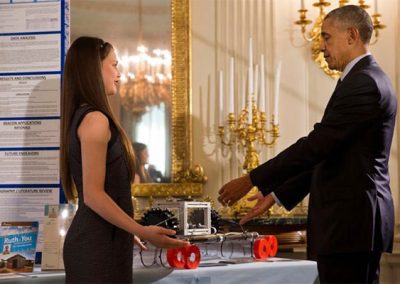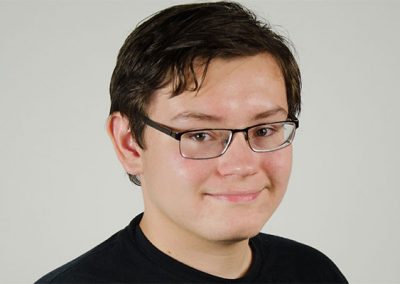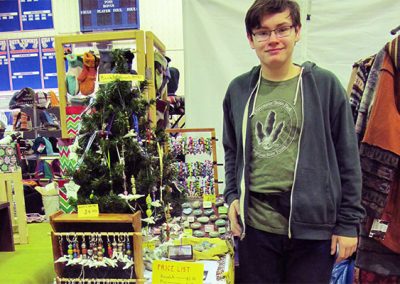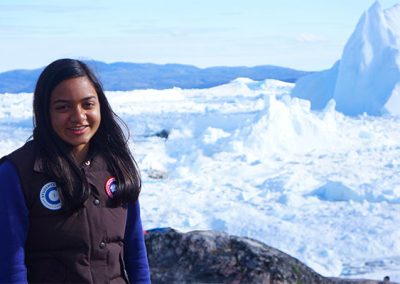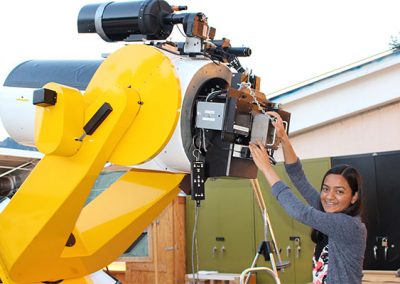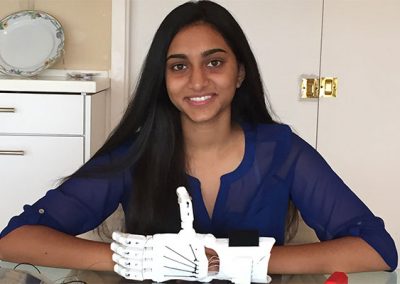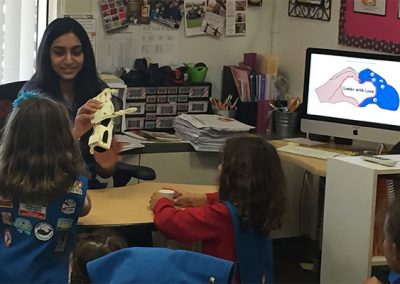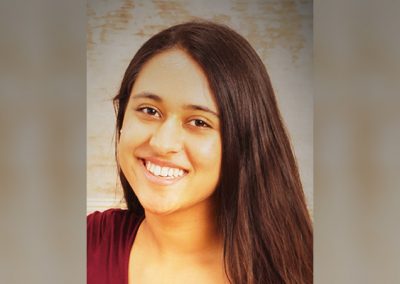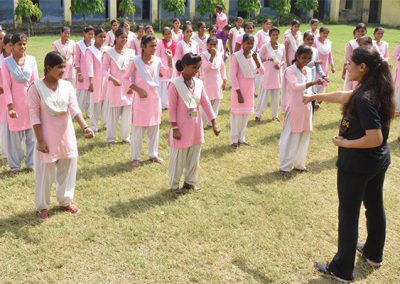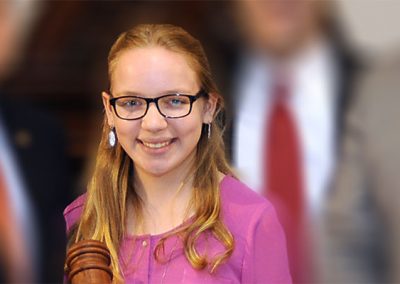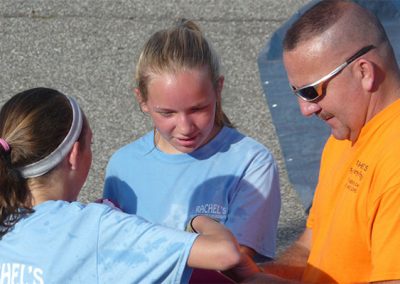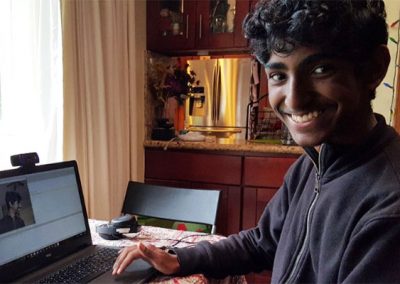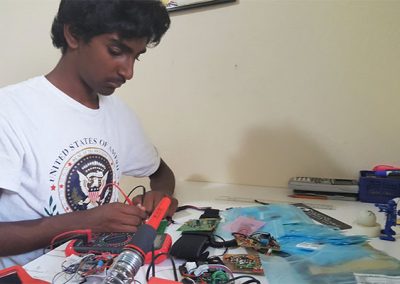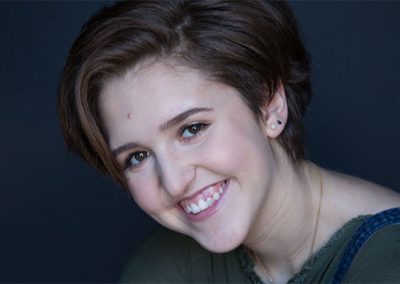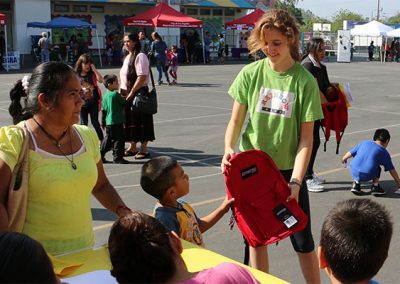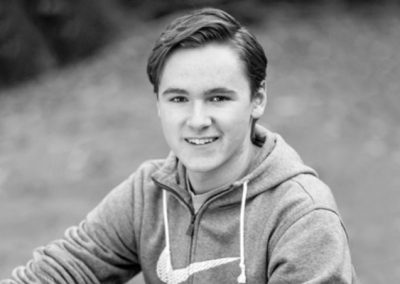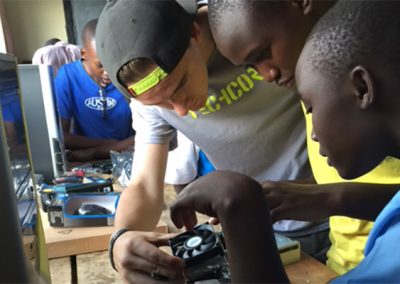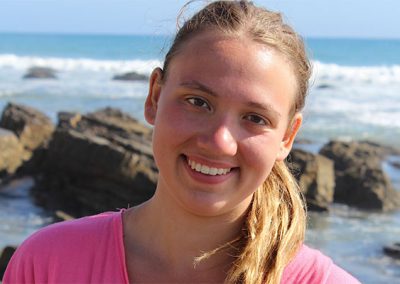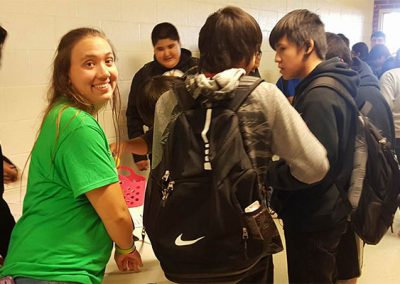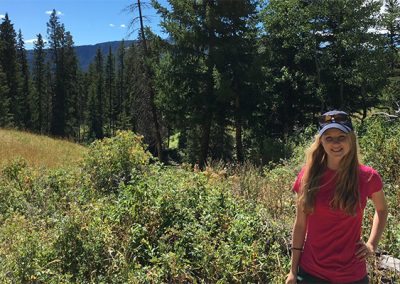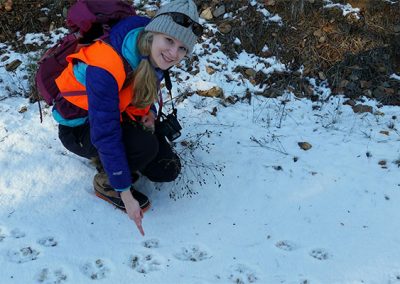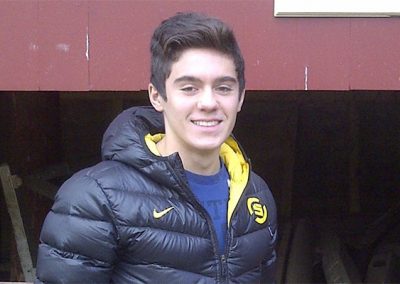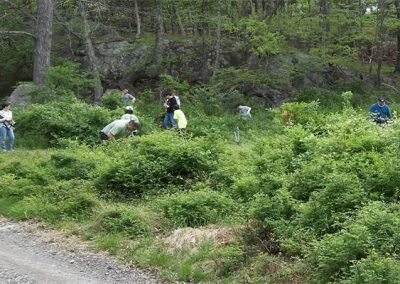Barron Prize Winners
2016 WINNERS
Winners are listed alphabetically by first name.
2016 Winners Announcement
The 2016 Barron Prize winners were all interviewed in October 2016 for a featured story (A Future So Bright) in Sierra Club magazine.
Allison
Founder, Purses for Primates
Age at Winning Prize
Home State
Additional Media Coverage
Allison founded Purses for Primates, a non-profit that has raised over $27,000 to protect orangutans and their shrinking habitat. She collects gently-used handbags from across the U.S., resells them at fundraising events, and donates 100% of the proceeds to Orangutan Outreach, a New York City-based conservation group. She is a founding member of the group’s extensive children’s program, Forest School 101, and serves as the program’s current ambassador.
Allison began her work at age seven after reading Koko’s Kitten about the famous gorilla’s friendship with a young cat. Inspired to research great apes, she was struck by the orangutan’s gentle, intelligent nature and devastated to learn the animal is facing extinction due to habitat loss — the destruction of the Malaysian rainforest to create palm oil plantations. Determined to sound the alarm, Allison found a way to weave orangutans into almost every elementary school assignment. She also rallied her classmates’ families to boycott palm oil and with the help of her mom, wrote and published Allie and the Orangutan. In middle school, she formed Purses for Primates and began fundraising in earnest. She has given numerous presentations about orangutan conservation, has developed curriculum that she shares with teachers, and has served on Jane Goodall’s Roots and Shoots National Youth Leadership Council. “I feel that sticking with my passion from a young age is the greatest gift I could have given myself,” says Allison. “It taught me how to have persistence and how to be brave and stay grounded.”
Anurudh
Inventor, VAXXWAGON
Age at Winning Prize
Home State
Additional Media Coverage
Anurudh’s idea was born of his own vaccination experience in India, where his grandparents carried him as an infant 10 miles to a remote village to receive a vaccine only to find that it had overheated and was no longer viable. He was able to receive the vaccine the next day but realizes that so many others aren’t as lucky, with 4,000 children dying every day from vaccine-preventable diseases. He decided that solving the problem of last-leg transport could help and spent months formulating his ideas on paper. Anurudh took his initial design to professors at nearby Johns Hopkins University, who not only validated it but offered funding. After nearly two years of refining a half-dozen prototypes, he has tested his latest design for 200 hours and has a patent pending, with plans to scale up and get the device to those in need. “I’m committed to seeing this project through to the next phase,” says Anurudh. “I will have succeeded when the first person’s life is saved because of VAXXWAGON!”
Delaney
Founder, The Sink or Swim Project
Age at Winning Prize
Home State
Additional Media Coverage
Delaney has written and illustrated three children’s books on ecological topics and recently completed a comic adventure book about climate change titled Where Did All the Polar Bears Go? Research for a new book for young adults about sea rise led her to develop The Sink or Swim Project and www.miamisearise.com. Delaney’s work has also evolved to include political action and advocacy. Last year, for example, she learned that Miami-Dade County officials mentioned sea level rise just once in a 1,000-page, three-volume budget and didn’t include any funding to address the issue. She spoke in front of the Mayor and County Commission to demand action and her work, along with that of other concerned citizens, led the Commission to agree to allocate $300,000 and to appoint Miami-Dade County’s first-ever Chief Sustainability Officer. “Kids get it. Here in South Florida, they see evidence of sea level rise all around us and they understand that our generation must solve this problem,” says Delaney. “I’m proud to play a small role in helping lead my generation toward the solutions our planet needs.”
Hannah
Inventor, BEACON
Age at Winning Prize
Home State
Additional Media Coverage
Hannah began her work two years ago after learning that her 9-year-old Ethiopian pen pal, Ruth, was living without a reliable source of electricity. Determined to help, Hannah began researching electricity production and through a process of trial and error, arrived at the BEACON, which she has tested in the Boca Raton Inlet. She plans to publish it in an open-source platform and to work with humanitarian agencies to make it available to anyone who needs it. “I hope that my prototypes can have an impact on Ruth’s life and the lives of other kids worldwide who dream of making a difference,” says Hannah.
Martin
Founder, Save the Seals
Age at Winning Prize
Home State
Enchanted by baby seals since preschool, Martin first became aware of their slaughter when he was in second grade. He immediately wrote a letter to the editor of his local paper and then rallied his teacher and classmates to action. Together, they crafted a petition, gathered 1,400 signatures, and sent it to the Canadian prime minister. “This campaign has developed my sense of compassion and awareness of the injustices inflicted on animals,” says Martin. “It has changed who I am, influenced my world, and made me realize I can make a difference.”
Maya
Creator, 400 PPM Documentary Film
Age at Winning Prize
Home State
Additional Media Coverage
Maya’s climate change passion began at age 14, when she joined scientists and other students on a research expedition to the Arctic. Hoping to make a home video when she returned, she filmed what she’d expected to see — the beauty of icebergs and polar bears – but also documented the unanticipated and disturbing stories of the native people, who explained how melting ice is destroying their ability to hunt and fish and provide for their families. Returning home, she was struck by her peers’ complacency around climate change and decided to produce not a home video but a full-fledged documentary. Maya knew nothing about filmmaking but dug in, first convincing Canadian dignitaries including novelist and activist Margaret Atwood to be a part of her film. Nearly two years in the making, 400 PPM was released in 2015 as a non-profit, open-source documentary film. It has been shown around the world and is projected to reach an audience of over 2.2 million students. “There were many late nights when I contemplated giving up on my project and getting a good night’s sleep,” says Maya. “I’m so glad I didn’t.”
Meghana
Founder, Limbs with Love
Age at Winning Prize
Home State
Additional Media Coverage
Meghana and her team of peers have perfected the lengthy process behind each prosthetic hand. One team member corresponds with the recipient to receive pictures and measurements while another uses special software and eventually Computer Aided Engineering (CAD) to complete the hand design. Finally, the design files are imported to the 3D printer which prints the parts that are then assembled like a puzzle into the final product. The process is made more difficult by the constant need to trouble-shoot printers and by the challenge of obtaining accurate measurements from children in developing countries. Undaunted, Meghana is currently developing a prosthetic hand controlled by electronics to increase finger functionality and sensory perception. She is also working to start 3D printer clubs in her community to encourage more students to learn to use the technology for good. “You are never too young to make a difference,” says Meghana.
Pooja
Founder – For a Change, Defend
Age at Winning Prize
Home State
Pooja has worked with the government of India and former UN Police Commissioner to promote strong women and responsible men in the villages of Northern India. Her curriculum has been implemented in government schools, Blind institutes for girls, orphanages, and colleges, and has been certified by the District of Education in Chandigarh to be implemented in over 450 schools in the near future. She has recently focused on teaching self-defense to victims of sex trafficking in poverty-stricken villages near Delhi, providing support and increasing protection for those who are most vulnerable. Closer to home, she has spoken about the importance of empowering women at venues including the United Nations and TED Talks, and has taught teen dating violence prevention in underrepresented schools in Los Angeles. She is currently working on a women’s safety app for college students that alarms when shaken and sends a GPS location to police and emergency contacts. “I see an opportunity for change and an obligation to serve as the changemaker,” says Pooja.
Rachel
Founder, Rachel’s Fun for Everyone Project
Age at Winning Prize
Home State
Additional Media Coverage
Rachel dove into fundraising, first designing and selling t-shirts and then organizing events such as spaghetti dinners, an auction, charity rides, and a community garage sale. She has expanded her efforts to include bike and car shows, an annual golf scramble, and a 5k running race. She has overcome her extreme shyness and now speaks confidently at community events, including City Council meetings, where she is allotted time each month to present a project update. Rachel has thoroughly researched playground manufacturers and has chosen the company and equipment design she feels is best. “I’ve learned to not take ‘no’ for an answer when seeking donations and to keep my goal in sight,” says Rachel. “By doing this, I know that I’m not only going to build this playground, but do almost anything I set out to do.”
Raghav
Inventor, SmartWalk
Age at Winning Prize
Home State
Raghav worked for months with his local blind center to test his invention. He used funds from a small grant to make multiples copies of the device and donated them to the blind center. He also published the design, allowing other non-profits to produce and distribute the device to those in need. For his invention, Raghav won first place in the California state science fair, as well as numerous accolades from other competitions. Working under the motto “Service Through Science,” Raghav has also invented a wearable device that can predict and prevent autistic outbursts. His love of science and electronics in particular began in third grade, when he took apart his remote controlled airplane after it crashed into a tree. “These experiences have taught me what it takes to translate technology from a concept to the real world where it can benefit and help people,” says Raghav.
Riley
Founder, Rainbow Pack
Age at Winning Prize
Home State
Additional Media Coverage
Riley began her work following a visit with her fifth grade class to an elementary school where she was moved by a kindergartener’s comment that she’d love new crayons but that her mother couldn’t afford them. Riley responded with action and that year, provided the school with 360 filled backpacks – enough for every kindergarten and first grade student. Since then, she has built an impressive support team, including nearly a dozen peers to help her gather donations and purchase wholesale school supplies using grant funding from local and national organizations. Riley has also garnered the support of a Los Angeles City Councilmember as well as the Los Angeles Unified School District (LAUSD) School Board. She is working with both groups to address the district’s overwhelming need for school supplies. “I’ve learned about the power of people and how you can inspire people to use that power for good,” says Riley. “Rainbow Pack is sustained by people’s generosity and desire to create real change.”
Ryan
Founder, Geeks for Good
Age at Winning Prize
Home State
Eager to begin his work with students, Ryan found he first needed to tackle the problem of Wema’s insufficient power grid and collaborated with science teachers to construct a small solar electricity system. He then dug in with students, who embraced his computer-building course. He returned to Africa this summer with a group of U.S. student volunteers to finish his work at Wema and, using graduates from that program as co-instructors, expanded to other schools in Kenya. Recognizing that it is impossible to learn on an empty stomach, the team also began constructing a self-sustaining farm that Ryan designed and raised the capital for, starting with a 300-chicken poultry operation to provide WEMA students with daily protein. Ryan recently began partnering with wildlife conservation and tourism-related companies to support computer labs in the communities where they operate — partnerships that will allow Geeks for Good to extend its reach in Africa and expand into Southeast Asia and the Caribbean Basin. “Through this work, I have discovered my humanity, my passion, and my purpose,” says Ryan.
Samantha
Founder, SHIFT Scoliosis
Age at Winning Prize
Home State
Samantha’s “Seeing the Curve” outreach team travels to underserved communities across the U.S. In addition to screening all of a community’s children, “Seeing the Curve” works with local professionals to provide hands-on training and to establish screening clinics. Samantha has organized half a dozen of these trips, including recent ones to the Big Island of Hawaii and to the Cheyenne River Sioux Reservation in South Dakota, the poorest place in America according to the U.S. Census. She is currently organizing a trip to Suriname, where she is laying the groundwork for a mass clinic to screen tens of thousands of children. She is also working with medical professionals to develop a tool that will simplify scoliosis screening and allow people worldwide to learn screening skills. “I want to give other children the gift I was given – healing and hope,” says Samantha. “And I want to be the best role model I can for the younger generation so they can see that youth can be positive, healthy leaders.”
Story
Creator, Kids4Wolves
Age at Winning Prize
Home State
Today, Story speaks to schools, politicians, and stakeholder groups, and has testified before the U.S. Fish and Wildlife Service and numerous times before the Washington State Fish and Wildlife Commission. She has helped hundreds of people get involved in the political process through writing letters, tweeting, and calling their representatives. She has discussed wolf science and non-lethal management strategies with multiple state legislators as lawmakers have debated new laws to adapt to wolf recovery. Story also conducts wolf research in Yellowstone National Park and Washington state, tracking wolves, setting up field cameras, and sharing her data with wildlife biologists and conservation groups. “I’ve learned that you can’t judge another person based on one belief,” says Story. “More often than not, you can find something in common with those you disagree with.”
Xerxes
Led a Project to Mitigate Water Contamination
Xerxes first came to love Muscoot Farm as a young summer camper there. He witnessed one day during a downpour massive amounts of manure washing into a nearby stream. He followed the stream to a river and soon learned the river fed into the public reservoir system. As he began mapping out a way to solve the problem, Xerxes made countless phone calls and asked local lumber stores to donate materials. Groups including the EPA and Audubon Society lent their expertise and support. In the end, he completed an estimated $60,000-$70,000 project entirely on a donation basis, including 2,600 volunteer man-hours. For his work, Xerxes was awarded the William T. Hornaday Conservation Medal, given to just ten Boy Scouts each year. “My vision for the future is having a genuine purpose and doing something that I believe in,” says Xerxes. “For me, that stems from the simple but special moment of connection that comes with helping others and the environment.”
HONOREES
Alex & Hannah
Age 13, Ohio
Campbell
Age 17, Texas
Desmond
Age 14, California
Emily
Age 14, Minnesota
Emma & Amy
Age 15, Ohio
Eric
Age 15, Texas
Hannah
Age 13, Georgia
Isabella & Willow
Age 10, Colorado
Olivia
Age 17, Tennessee
Sabina
Age 18, New Jersey

